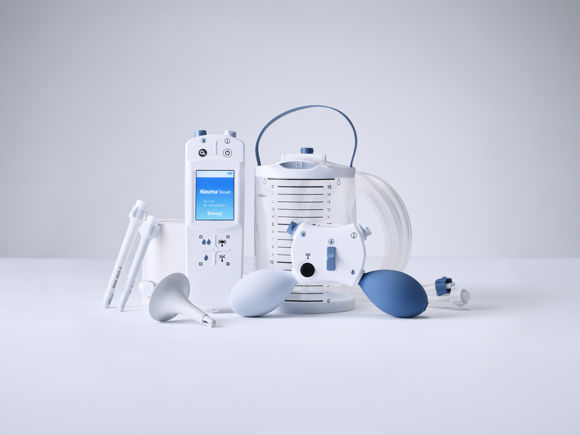
What is Bowel Irrigation or TAI?
For most of us, emptying the bowel is nothing to worry about. However, it does not work as smoothly for everyone. When it becomes an issue, because you either have to spend too long time on the toilet or experience bowel leakage, bowel irrigation may be a treatment option.
Treatment with bowel irrigation, sometimes also called rectal irrigation or transanal irrigation (TAI), is an option when other treatments like medications and restrictions in diet and fluids have not helped. The healthcare professional always makes the final decision for each individual as to whether bowel irrigation is the suitable choice for you.
How Does Bowel Irrigation Work?
A rectal catheter with a balloon, or a cone catheter (without a balloon) is inserted into the rectum. The balloon is inflated in the rectum and holds the catheter in place while the water is instilled. This initiates the bowel movements (peristalsis), that moves the stool towards the rectum. When the water is instilled and the catheter is removed, the bowel can be emptied. The procedure is carried out on the toilet and you can do your bowel irrigation at home.
Performing this procedure regularly will empty the bowel effectively, and the bowel will remain empty until the next irrigation. This will allow you to choose the time and place when you empty your bowel.
What are the Benefits of Bowel Irrigation?
The purpose of bowel irrigation is to prevent bowel symptoms. When bowel irrigation has been compared to bowel care with medications, there are:
- Fewer complaints of constipation
- Less bowel leakage
- Improved symptom-related quality of life
- Reduced time spent on bowel management
With bowel irrigation you regain control and the independence to live the life you prefer without being afraid of having a bowel accident.
Read more about the Navina Irrigation System for bowel irrigation here.
-
Navina Irrigation System
Navina Irrigation System is used for effective high volume transanal irrigation (TAI) therapy. It is the only system on the market offering both manual and electronic control to effectively relieve bowel leakage or chronic constipation.

-
How to Stop Bowel Leakage
Anyone who has had to deal with bowel leakage knows that both the physical and psychological consequences tend to limit peoples' lives and prevent them from doing what they want. Fortunately, there is help available.
-
User Stories - Bowel
Here our users share their stories on how they live and cope with bowel issues.

For Healthcare professionals
Discover information on anatomy & physiology, bowel dysfunction, treatments, therapy, clinical insights.
-
Webinar: TAI with Navina
key:global.content-type: Webinar
In this webinar, Bev Collins, Clinical nurse lead, Wellspect, will tell you the most important information you need to know about transanal irrigation (TAI), how to use Navina Irrigation System ...

-
What is Transanal Irrigation?
key:global.content-type: Article
Transanal irrigation, shortened to TAI, may also be called retrograde, rectal or anal irrigation, which all refers to a minimally invasive technique to empty the bowel.
